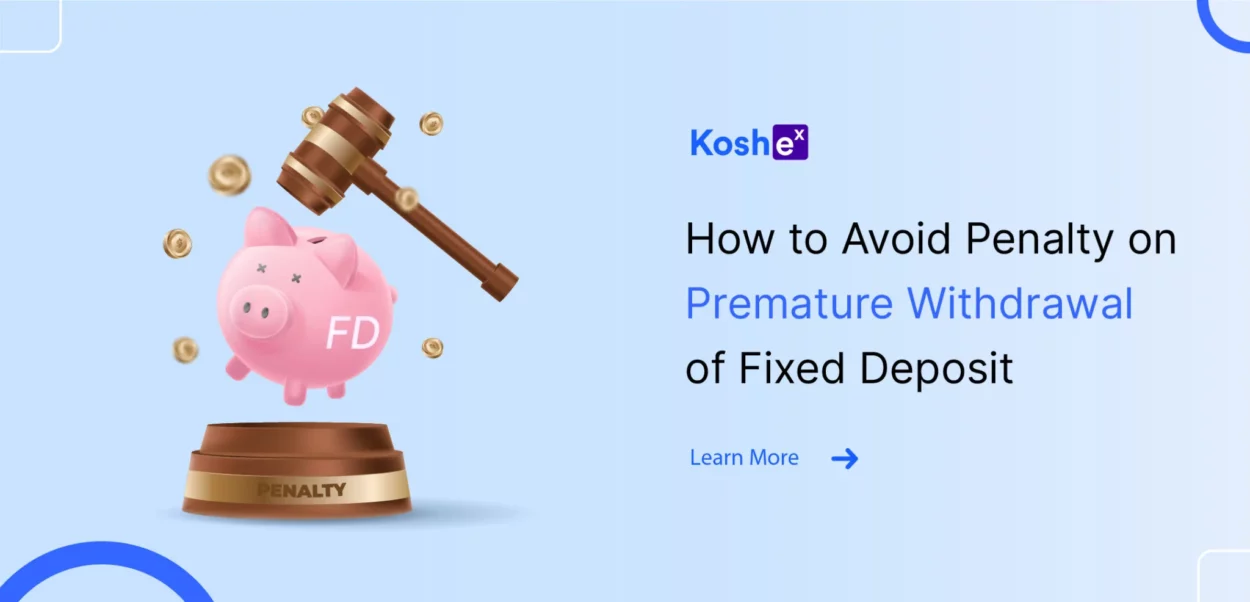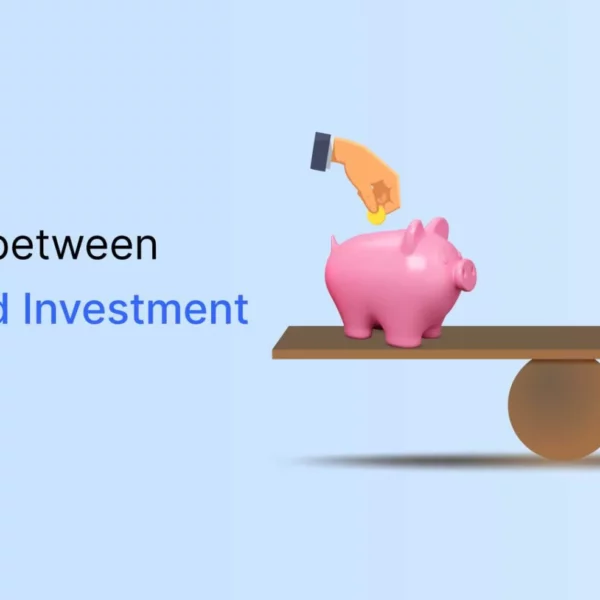Bank Fixed Deposit (FD) is one of the most popular investment instruments in India. They are loved by many, as they are considered to be safe and earn guaranteed returns.
There are many FD tenures to choose from: you can choose from 7 days to as long as 10 years. This makes Fixed Deposits a good short-term and long-term investment option. Bank FDs can be easily liquidated, making them a perfect option for your emergency expenses.
However, you will attract a penalty when you redeem your FDs prematurely.
In this article, we will be talking about ways in which you can avoid penalties for premature withdrawal of fixed deposits.
If you are someone who doesn’t know much about Fixed Deposits, let us tell you all about it.
What Are Fixed Deposits?
A fixed deposit, also known as FD, is an investment instrument offered by banks and non-banking financial companies (NBFCs). Considered to be one of the safest investment options, FDs are loved by many Indians.
When you open an FD account, you can invest a sizeable amount of money at a predetermined rate of interest for a fixed period. At the end of the FD period, you will receive the lump sum amount, along with interest.
Banks offer different rates of interest for an FD account. The interest rate depends on the type of banks (public sector, private sector, or small finance banks). Generally, senior citizens are offered higher interest rates.
The interest you earn on your FD is either paid at maturity or on a periodic basis depending on your choice. However, you cannot withdraw the money before maturity and if you wish to withdraw your money, you would have to pay the penalty to do so.
Fixed deposits’ period ranges from a minimum of 7-14 days to a maximum of 10 years. This is why an FD is sometimes called a term deposit.
How To Break A Fixed Deposit Account Before Maturity Date?
You can break a fixed deposit account prematurely by either visiting the bank or through net banking. If you are doing it in person by visiting the bank, the fixed deposit receipt needs to be submitted to the bank, which is signed by all the account holders.
If you don’t have the receipt, a fixed deposit liquidation form needs to be filled by the account holder. Once filled and submitted, the bank will process the request and the amount will be transferred to your personal account.
What Is The Premature Withdrawl Of A Fixed Deposit Account?
As we have mentioned before, sometimes, investors might have to withdraw from their Fixed Deposits prematurely. You might want to do premature withdrawal because of sudden medical emergencies, or any other unexpected situations.
Premature withdrawal does attract penalties, and the amount of penalty differs from one financial institution to another. It could be usually 0.5% to 1% of the interest rate.
How To Avoid Penalty On Premature Withdrawal?
There are ways in which you can avoid penalty while prematurely withdrawing your Fixed Deposit amount.
Sweep-In Facility
The sweep-in facility allows your bank to credit any sum in excess of the amount you had stipulated from your savings account to a sweep-in account.
The tenure of the deposit differs from one year to five years, and the interest rates also vary accordingly. You are likely to earn a higher interest on the amount deposited to your account.
The sweep-in facility is not offered to all bank customers. The criteria may differ from bank to bank. Usually, in order to be eligible for it, you have to open an FD of at least ₹25,000 with your bank.
On the other hand, you could open a premium account where the minimum balance on either a monthly or quarterly basis is in the range of ₹25,000 to ₹1 lakh.
One benefit the sweep-in facility provides is that it forms a separate corpus that you can dip into during emergencies, without touching your regular investments or having to liquidate your FDs.
On top of that, it doesn’t attract any fees or penalties on withdrawal. Even if you withdraw some amount from your deposit, the balance amount will continue to earn interest at the same rate.
This facility might not be suitable for those who maintain a significant amount of idle money in their savings account.
Avail A Loan
Instead of withdrawing your Fixed Deposit amount prematurely, you can consider taking a loan against your FD. Most lenders offer this facility and the interest charged for a loan on a term deposit is generally 1-2% above the interest paid on the deposit.
However, the interest rate depends and differs from bank to bank. So, it is important that you consult your bank in case of any queries before availing of this facility. Most lenders allow their customers to avail up to 90% of their deposit amount.
FD Laddering
FD laddering is a process where you apply for several fixed deposit schemes with different maturity periods. It is a better way to manage liquidity.
All you need to do is take a lumpsum amount and divide that amount into smaller investments by opening multiple fixed deposit accounts.
For example, if you have ₹7 lakh, you can invest it in seven different smaller FDs with maturity periods ranging between one year and five years.
When you follow this method, you will not only have long-term fixed deposit accounts but also short-term fixed deposit accounts, ensuring that you have enough liquidity.
The laddering process helps you as you don’t need to make any premature withdrawals and also meet your immediate financial requirements.
On the other hand, if you need to withdraw money prematurely, it will be only to the extent of the amount you will need.
Let’s say, you need an amount of ₹2 lakhs, you can prematurely withdraw ₹1 lakh each from two of your FD accounts.
While you might have to pay a penalty for those two accounts, the rest of the FD accounts will continue to earn you interest on your deposits. You can then choose to reinvest on maturity so that you can increase your cash flow.
In The End…
Premature withdrawal from your Fixed Deposit account may attract penalties but you can plan your withdrawals smartly using the above three methods.
Fixed Deposits are great investment instruments, as they offer guaranteed returns. They can bring stability to your investment portfolio.
If you are someone who has invested a lot of money in risky assets, like stocks or Small-Cap mutual funds, you can consider allocating a little portion towards Fixed Deposits.
We hope this article helped you understand how you can avoid penalties when you prematurely withdraw from your Fixed Deposit account.
If you wish to learn more about other investment instruments, such as Mutual Funds, Smart Deposits, and more, you can head over to our Blogs section.
Interested in stepping up your money management strategy? Then, you have to check out our platform to see how we help millions of Indian investors to manage their money and secure their financial future like a pro for free.
Create a free account and experience Koshex’s state-of-the-art technology that is designed to make money management and investing to grow your wealth easy for every type of Indian investor.









Leave a Comment